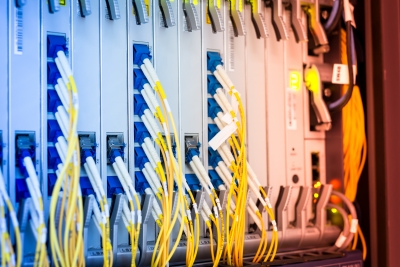The Philippine Bureau of Customs (BOC) has taken the first step to further automate its systems and modernize its processes with the help of Washington-based lender World Bank (WB).
Customs Commissioner Isidro Lapeña said BOC on January 25 concluded a workshop with WB, which is the start of “a series of stages” leading to the approval of a customs modernization project being prepared by the lending institution.
Earlier, the customs chief said he is eager to implement WB’s US$200 million Philippines Customs and Trade Facilitation Project (PCTFP) that aims to support export-led economic growth by assisting BOC to reduce trade costs, improve transparency, and increase revenue collection.
But the project is still in the pipeline and up for review by the WB Board, and since it’s a loan, by the Philippine government as well.
READ: WB designing $200M modernization plan for PH customs
Lapeña acknowledged that BOC’s computer system is “slow” compared to those of customs administrations in other countries. He hopes the WB project will put BOC standards on a par with global standards, just like the other customs administrations helped by WB.
In the Project Information Document/Integrated Safeguards Data Sheet available on WB’s website, the lender said the PCTFP “will support the modernization of systems, procedures and operational activities in line with accepted international standards for the processing and clearance of imported and exported goods.”
“This will be especially beneficial for traders from outside Manila (i.e. Visayas and Mindanao), which will be able to deal with Customs without having to complete their processes at the capital,” the concept paper stated.
It added that this, in turn, will increase the Philippines’ trade competitiveness, facilitating export growth and diversification.
WB said that in a more competitive international environment, key to rapid, inclusive, and sustained economic growth is adopting trade reforms.
Moreover, modernizing the BOC will lead to a more transparent and accountable governance.
The project will be funded via investment project financing that will provide International Bank for Reconstruction and Development loan and International Development Association credit/grant. Board review for the project is set for July 12, 2018.
The project will consist of three operational support components, namely, institutional development, trade facilitation, and ICT modernization, as well as one project management component.
The regional coverage of the project will include Manila and Mindanao. The financing amount will range from $120 million to $150 million, depending on the agreed scope of work prior to project appraisal.
Institutional development, which will cost from $25.5 million to $50 million, will support the transformation of BOC into a professional organization that is transparent, accountable, and more responsive to the needs of public and private stakeholders.
This will be achieved through reviewing the organizational structure, supporting strategic and operational planning, developing client service standards, preparing integrity assessments and mitigation strategies, and supporting human resource management and development reforms.
The trade facilitation component, which will cost $2.75 million, will support the implementation of internationally agreed standards in processing imported and exported cargo, consistent with World Trade Organization, World Customs Organization, and Association of Southeast Asian Nations commitments.
This will be done by reviewing and redesigning business processes, implementing the customs provisions of the WTO’s Trade Facilitation Agreement, improving voluntary compliance, and developing or strengthening a range of critically important value-added functions including intelligence, post-clearance audit, enforcement, and anti-smuggling and compliance-based risk management. This also includes the effective implementation of the Customs Modernization and Tariff Act.
The third component, which is the costliest at $95 million, will support the modernization of BOC’s core ICT systems, related technical infrastructure, and internal capacity to manage and operate a sophisticated ICT operation.
This is to ensure ICT systems and related infrastructure contribute to improving operational effectiveness, integrity, accountability, and organizational performance. It will also see the development of a long-term ICT strategy on the connection and interoperability with whole of government National Single Window system and port community systems.
Since most advanced functions, such as post-clearance audit and the Authorized Economic Operator (AEO) program will need efficient ICT, the WB said its project will devote significant attention to fast-tracking the design and implementation of the core ICT system and related infrastructure.
The last component, project management, will support project implementation and establish a project-implementing unit within BOC to provide fiduciary support for quality assurance, together with monitoring and evaluation functions to assess progress in meeting the project’s development objective. The IT infrastructure will cost $3 million.
The proposed project will include establishing a customs academy at either Subic Bay Metropolitan Authority grounds or Clark Freeport, both of which are owned by the national government. – Roumina Pablo
Image courtesy of cookie_cutter at FreeDigitalPhotos.net






